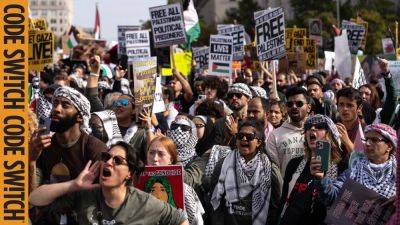Many people in jail have the right to vote. So do many felons
Voting in the U.S. is widely considered to be an accessible privilege for all Americans. In reality, voters face confounding rules that change from one state to the next.
Things get especially confusing for the roughly 450,000 people locked up in local jails who haven't been convicted of any crime and still have the right to vote.
In many cases, even people who have been convicted and are serving time for a misdemeanor or felony, or who have a criminal past, are still eligible to vote.
But just because they have the right to vote doesn’t mean it’s easy or accessible.
“Pretrial detainees are still unconstitutionally being denied access to the ballot simply due to a lot of procedural failures and administrative failures,” said Christina Das, attorney on the Black Voters on the Rise team at the NAACP Legal Defense Fund. “On paper, they have the right to vote, but it is not being actualized.”
Voting while incarcerated
The U.S. is a patchwork system of state laws where it is up to voters, lawmakers, election administration and funding to allow incarcerated individuals to vote, Das said.
Notably, voting districts have been created around prison populations, many of whom cannot vote — a practice that critics call “prison gerrymandering.”
There are just a few locations in the U.S., like Cook County in Illinois, Los Angeles County and the state of Colorado, where jailed individuals take part in in-person voting.
In many more jails where there is no in-person voting, someone who is newly detained — for example, a day before the Nov. 5 election — would have missed the deadline to request an absentee or mail-in ballot, so “there is no remedy,” Das said.
This person is effectively disenfranchised despite potentially being detained







